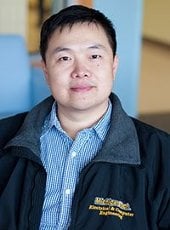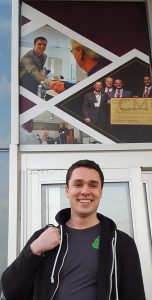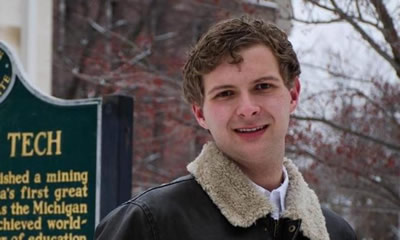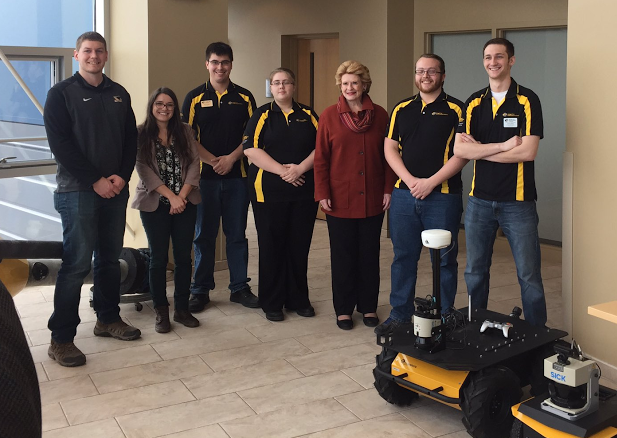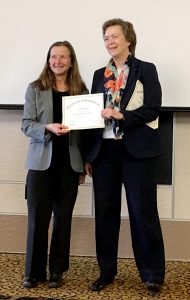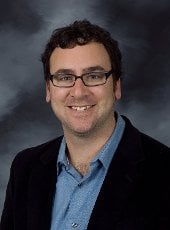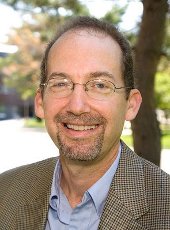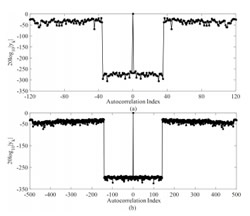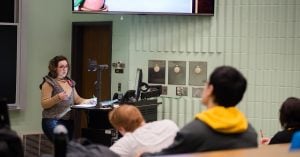
In my last post, I raised the question of why we do research in a university setting. My main point, which I hope I made clear enough, is that we should have research programs because we are passionate about the work itself, and not for some other reason such as supporting a PhD program. While PhD programs are an important part of what we do, I believe strongly that we cannot be effective advisors and mentors for PhD students—training our replacements, essentially—unless we are good at research in the first place, in our own right.
Having addressed that question, an obvious companion question came to mind—why do we teach? At first, my motivation for addressing this was only out of symmetry. Normally, when I realize I am about to do something for that reason, I remember the old adage “foolish consistency is the hobgoblin of little minds” and then go ahead and do it anyway. In this case, however, raising the question itself was an opportunity for me to explore some of my own life choices. This was one of those cases where, having decided on a topic, I was not entirely clear on the points I was going to make until I was done writing! Hopefully you will find a little more clarity below, and if not I hope this might stir any readers who are teachers to ask the same question of himself or herself.
By way of context, I should mention that I come from a long line of teachers, including several math teachers. My grandfather on my father’s side was a farmer in Oklahoma and Kansas, and in the 1910s and 1920s his primary income came from teaching in a one-room schoolhouse in western Oklahoma. The handbell he used to call students to class after lunch and recess still sits on the piano in my home. My grandmother on my mother’s side taught grade school in a white community adjacent to an Indian reservation in eastern Washington, during World War I, before she married my grandfather and moved to Oklahoma. My mother took up teaching as a second career in the 1970s, and was a math teacher in the Tulsa public school system and later at Tulsa Junior College. I have one cousin who teaches high-school math in a suburban Tulsa school district, and another who recently retired from teaching high-school math in Fremont, California. I have a nephew who is a faculty member in math at Glendale Community College, in Los Angeles, a niece who taught high-school math in Niwot, Colorado, a niece who teaches middle-school English in Norman, Oklahoma, and is married to the high school debate coach, and the wife of a nephew who taught elementary school in another Tulsa suburb. I guess it’s in my DNA.
This is as good a place as any to mention that my father was an electrical engineer and my mother was a math teacher, and for the past five years I have put a lot of effort into teaching a large freshman class called “Essential Mathematics for Electrical Engineering.” Sometimes the universe does offer up beautiful symmetries, if we are paying attention.
But back to the question of why we teach in the first place. Here is my top 10 list.
1. We are good at it. Some people just have a knack for communication and connecting with others, for organizing and presenting their ideas clearly and concisely, for showing that what they are trying to do really matters. I have heard it said that “before someone cares what you know, they have to know that you care.” Teachers who can pull this off have found the right line of work.
2. Someone pays us to do it. This often goes along with #1 above. If there is something that we do reasonably well, and others are willing to pay us for it, chances are it is something that we find enjoyable and rewarding. At the very least it gives us a reason to get out of bed and put one foot in front of the other. A paycheck might not be world’s best motivation, but it is not the worst one either.
3. It keeps us young. This was something I noticed when I first entered graduate school—all of my professors seemed younger than their counterparts at the same chronological age in industry. There has to be something about the constant contact with those from an earlier generation that allows us to continue seeing the world with fresh eyes. This doesn’t really address the problem of the ever-widening gap between my generation and that of our students, but I don’t think anyone is going to solve that one. Time’s arrow moves in one direction.
4. Benefits to the individual students. At a place like Michigan Tech, our teaching programs are built around improving the lives of our individual students, giving them the skills and the knowledge that they need to be successful, personally, professionally, and financially. Of course we have to hold our students to a high standard; otherwise our efforts are meaningless. At the end of the day, however, our placement rates and starting salaries speak for themselves. We aim as well to provide students with the means for lifelong learning and an ability for critical thinking that will serve them well in all aspects of life.
5.Workforce training and economic development. Going hand-in-hand with the benefits to our own graduates, as individuals, is the benefit that those graduates bring as newly trained engineers to our state, our region, and the nation as a whole. As I have pointed out before, Michigan Tech is unique in Michigan in that our obligation to the welfare of the various industries in the state is called out in our founding legislation. Placing properly educated engineers in positions of responsibility is a big part of what we do. The economic situation in Michigan has had its ups and downs, but right now things are looking up, and we need to do our part to continue moving in the right direction.
6. Benefits to society at large. The benefits of a college education to society have long been recognized. Thomas Jefferson noted that democracy and self-government could not function without an educated populace capable of making well-reasoned decisions, and he used that as an argument for education reform in our new nation. Benefits that go beyond economics in modern society are well-documented, see e.g. the recent report by the College Board entitled “Education Pays 2016.” A college degree is associated with a healthier lifestyles, regular exercise, reduced healthcare costs, greater engagement with family members, community volunteer activity, and higher voting rates. It’s hard not to want to be a part of that.
7. It’s the best way to learn a new topic. This is one of those academic truisms that gets played out all the time. If a faculty member wants to steer his or her research or scholarship in a new direction, the first thing we try to do is teach a new course in that area. This forces us to learn the subject thoroughly, in an organized way, and we are put on a schedule with a weekly deadline where we have to stand up in front of a classroom and defend what have learned. One does not understand a subject until one can explain it clearly to someone else.
8. Fundamentals are important. Just like teaching a new course is good way to learn a new topic, it is also true that teaching a familiar topic is a good way to maintain a healthy intellectual discipline. This is an important message to carry to those outside of academia with whom we work, as well as our graduates about to enter the workforce. We sometimes hear this narrative that material taught in the classroom is irrelevant, and that the “real” technical knowledge is what one learns on the job. I emphatically reject that notion. While an industrial perspective can be quite valuable for our educational programs, I have also seen situations in which technical projects go awry when engineers lose sight of the very foundations of their field. In engineering, just like in baseball, the fundamentals never go out of style, and the most successful companies and organizations know that.
9. We have nothing better to do. It goes without saying that this is the absolute worst reason to teach. Unfortunately, it can happen that faculty members who are unproductive in other areas find themselves with increased teaching responsibilities. In the worst-case scenario these responsibilities are assigned as a form of punishment. (I do not subscribe to this management philosophy!) It is as if teaching is the fallback position, our “day job” as it were, like waiting tables or driving for Uber. (I hasten to add that here is absolutely nothing wrong with waiting tables or driver for Uber if that is what brings satisfaction or what one needs to do to make ends meet.) In a future post I hope to take up the relationship between teaching and research, but for now I will just say that this assumption—that we can always teach—does not help to counter the myth that research is more important than teaching. Our academic workload models tend to be built around the notion that we do as much research as we can find support for, and whatever time is left over is then devoted to teaching. Part of me wishes that faculty had to compete for the right to teach courses (and get paid for it), the same way we have to compete to do research through writing grant proposals and the like. The good news, at least in the ECE department at Michigan Tech, is that this sort of default teaching is pretty rare. It is true that we have a few faculty members who are not research active, but most are outstanding teachers and would win hands-down any competition that would earn them the right to teach as much as they do.
10. We want to make the world a better place. This is my half serious, half glib, reason that encompasses a lot of the other good reasons I give above, and I add it here because I really did not want to end with #9. It is the same reason that I gave in my last post about why we do research. In teaching we make the world a better place through leverage, by giving large numbers of young people the tools that they need to go out and improve life for themselves and for everyone around them. I will admit, this is the viewpoint of the eternal optimist, but that is a criticism I can live with.
Although not utilized very often, this blog post does have a comment feature. Teachers out there, I would love to hear from you. Why do you teach?
– Dan
Daniel R. Fuhrmann
Dave House Professor and Chair
Department of Electrical and Computer Engineering
Michigan Technological University

